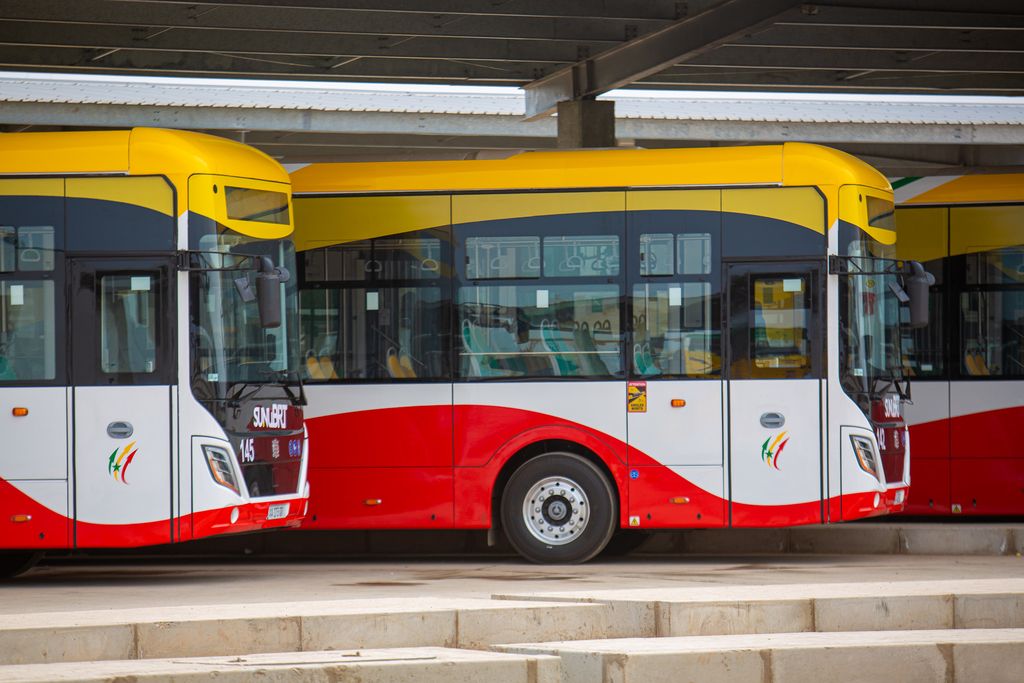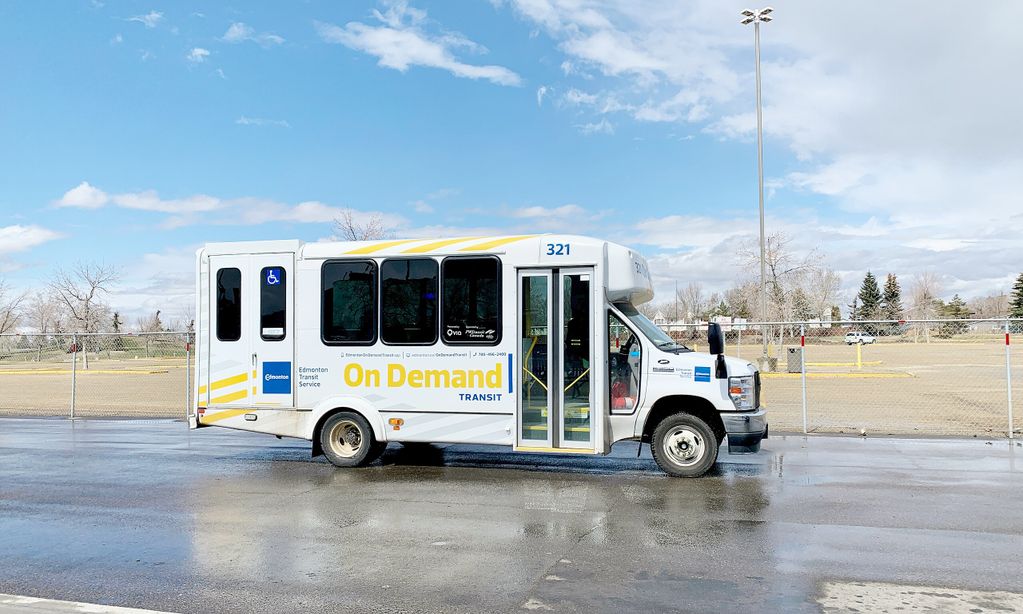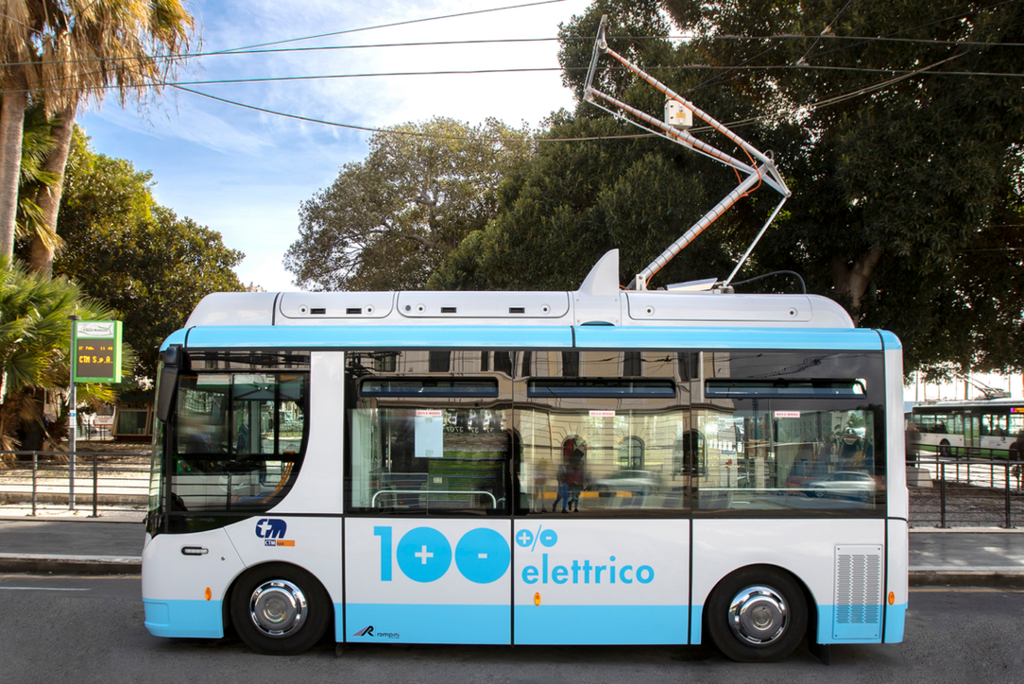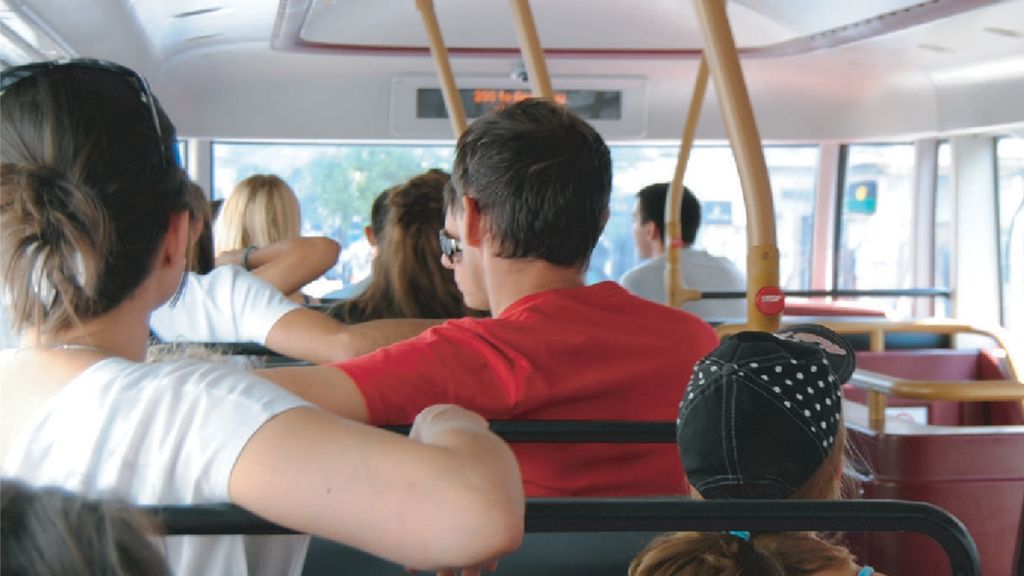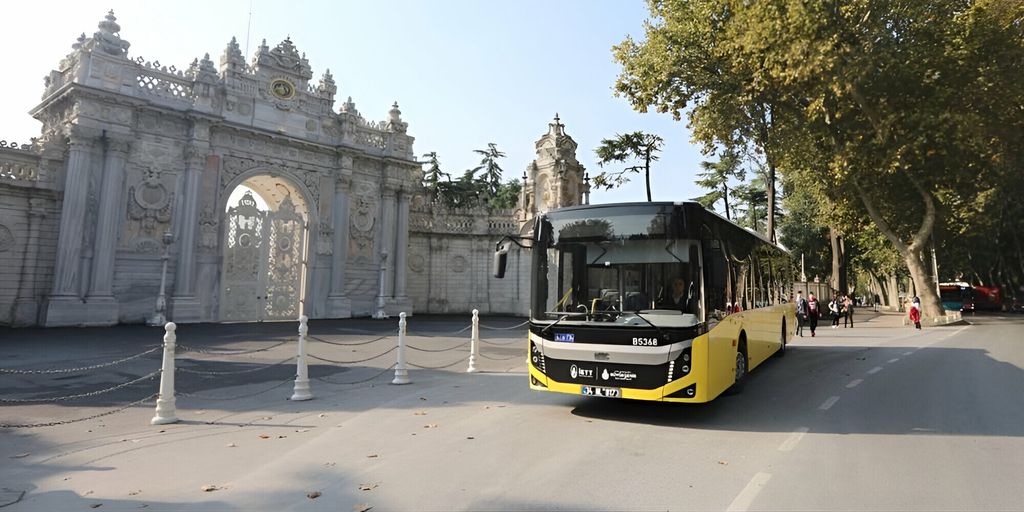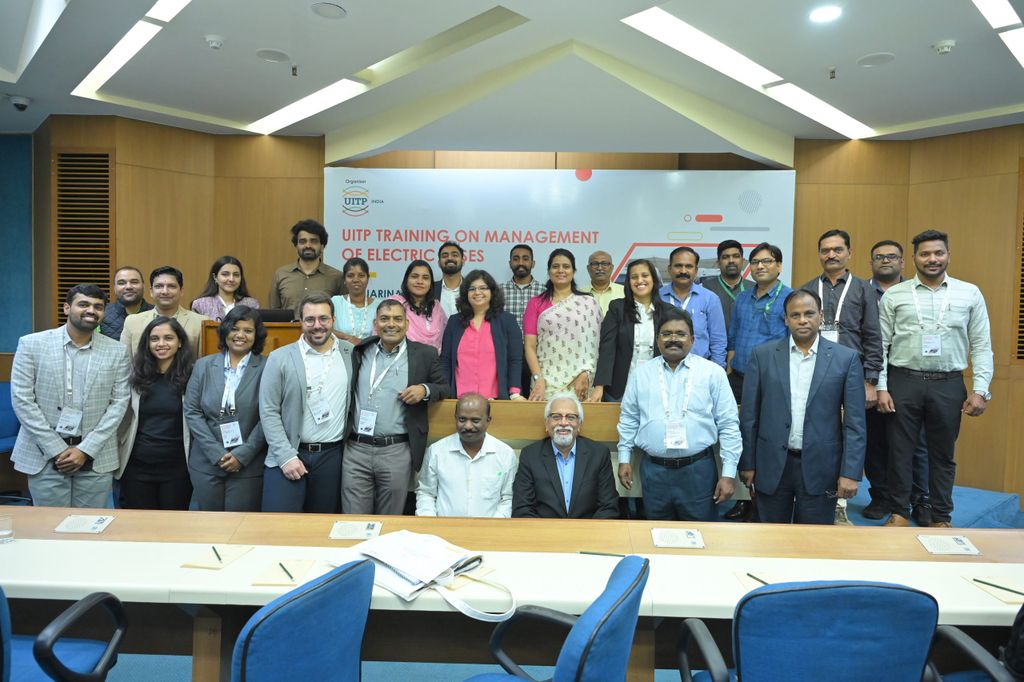
Advancing Electric Mobility: Insights from UITP India's E-Bus Training Programme
UITP India hosted a two-day training program on the ‘Management of Electric Buses’ in Delhi on 28-29 November 2023. The training program featured five key national and international trainers who shared their knowledge on key topics, including planning, operations and implementation, E-bus deployment in Metro Cities in India, procurement and contracting, infrastructure and technology planning, and worldwide lessons on the deployment of E-buses.
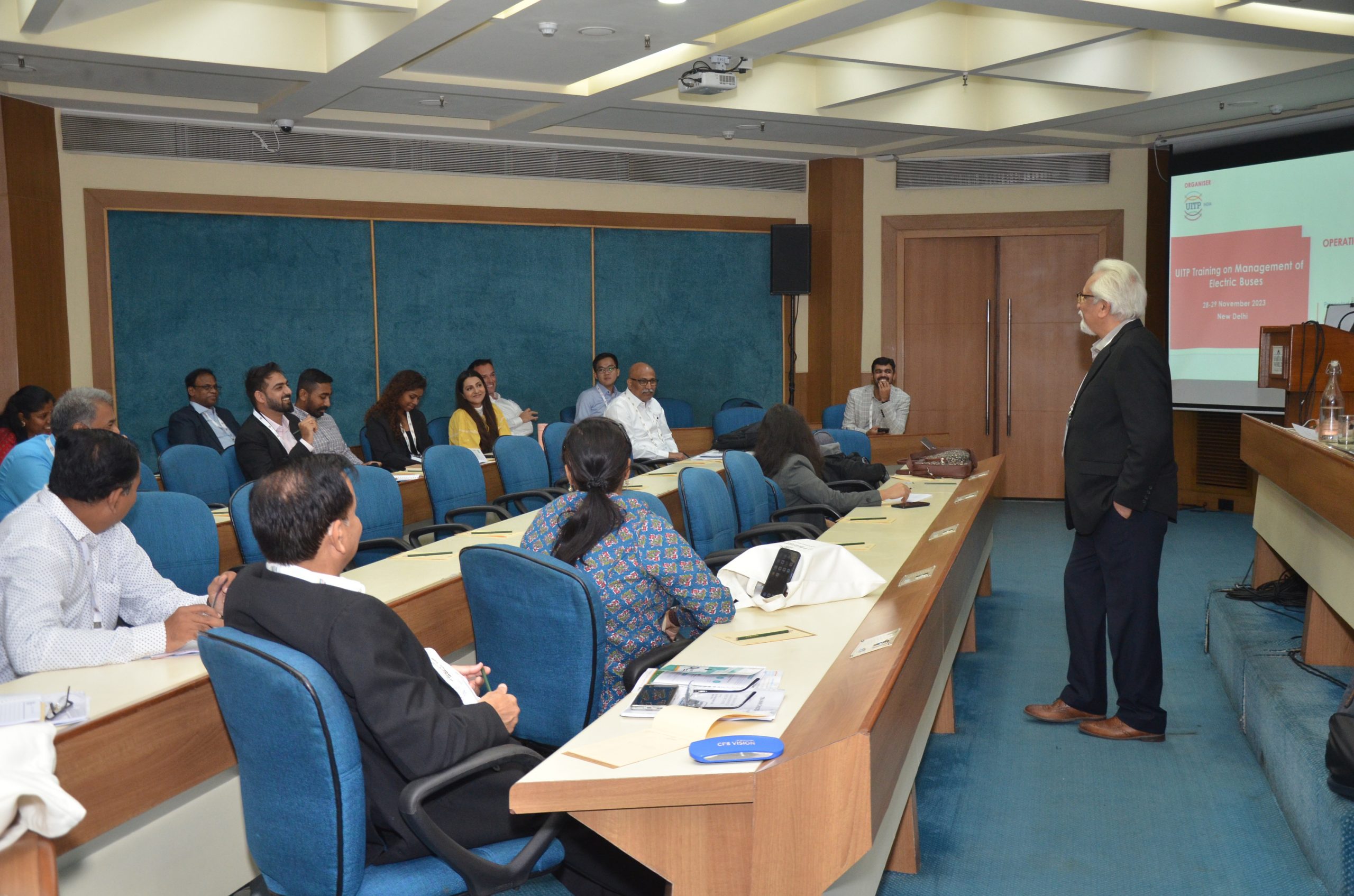
Capacity Building and Knowledge Sharing in E-bus Management
The training program aimed to build the capacity of key stakeholders involved in the growth story of electric buses and provide a platform for knowledge sharing and discussion. The event was attended by 42 participants representing 11 State Transport Undertakings (STUs) and Municipal Transport Undertakings (MTUs), 2 Original Equipment Manufacturers (OEMs), and other non-profit organizations. The key highlight of the training program was the group activity on contract making and the technical visit to the Electric Bus Depot in Delhi.
Ms. Rupa Nandy, Head of UITP India, initiated day one of the training program by delivering the welcome address, providing a briefing on the training context while considering recent developments on electric buses in India. Alok Jain, CEO and Managing Director of Trans-Consult Limited, Hong Kong, and Manel Rivera Bannassar, Bus Manager – Knowledge and Innovation at UITP Brussels, led the first session on Planning, Operations, and Implementation. Mr. Jain discussed the relevance and necessity of a systems approach, operating flexibility, and the development of E-bus projects for the deployment of e-buses in cities. Continuing the discussion, Mr. Manel set up the global context of the bus sector and discussed in detail the phased approach for e-bus deployment and key elements for a successful e-bus operation.
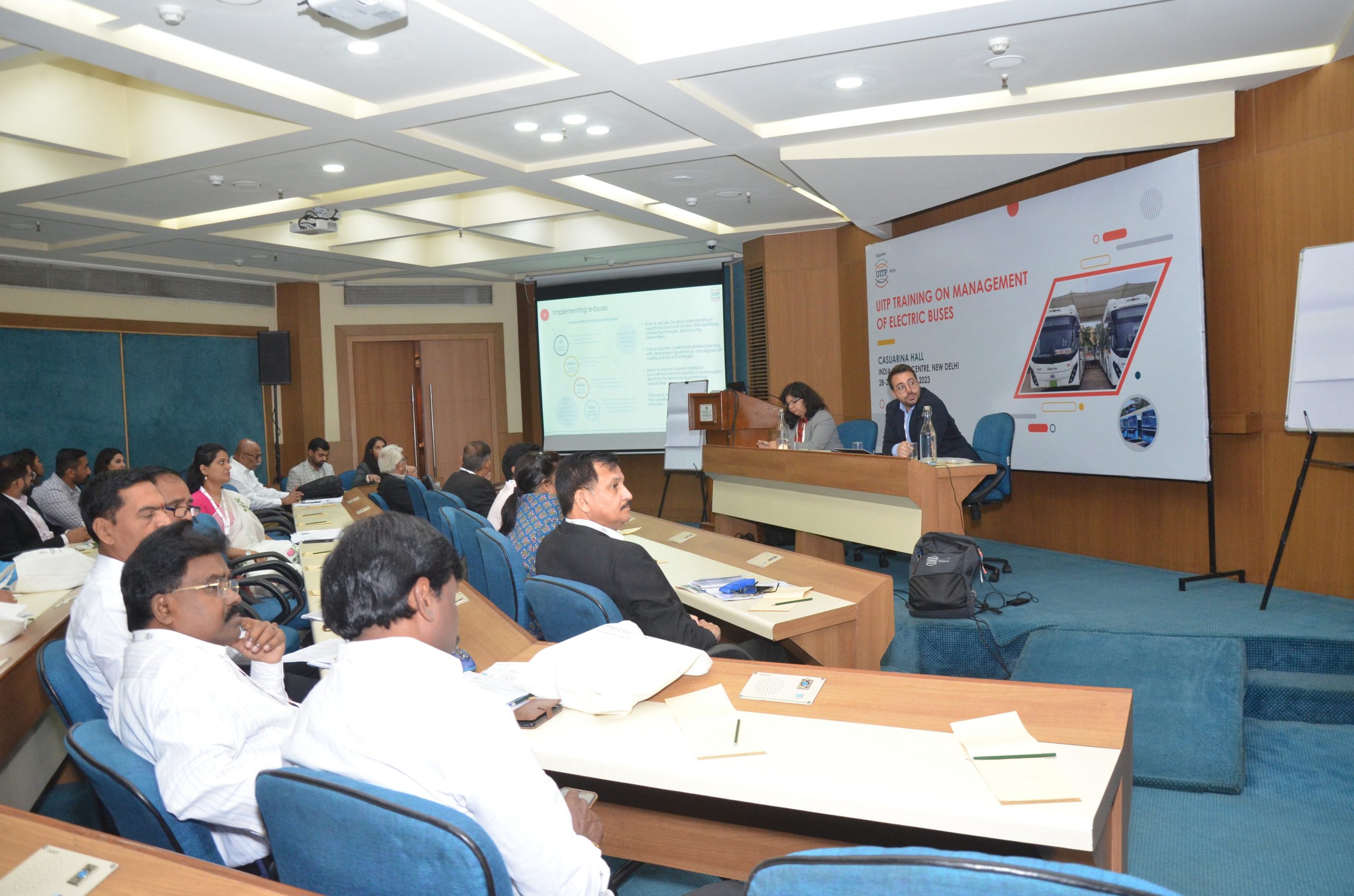
Procurement and Tendering Experience: Case Example from Indian cities
C.K. Goyal, Senior Vice President of Delhi Integrated Multi-modal Transit Systems (DIMTS), presented interesting case studies from the capital city of Delhi during the second session on E-bus deployment in Metro cities. Pravin Shetty, Deputy Traffic Manager (Planning) at BEST Mumbai, presented case studies from the city of Mumbai. Mr. Goyal shared the Government of NCT of Delhi’s approach to making Delhi the Electric Vehicle (EV) capital of India. He discussed the procurement plan based on demand aggregation, depot electrification plan, and an AI-based approach for identifying feeder bus routes. Mr. Shetty presented BEST’s roadmap for scaling e-buses, future business plans, the go-green initiative, operational challenges, and key learnings from past operations and tendering experiences.
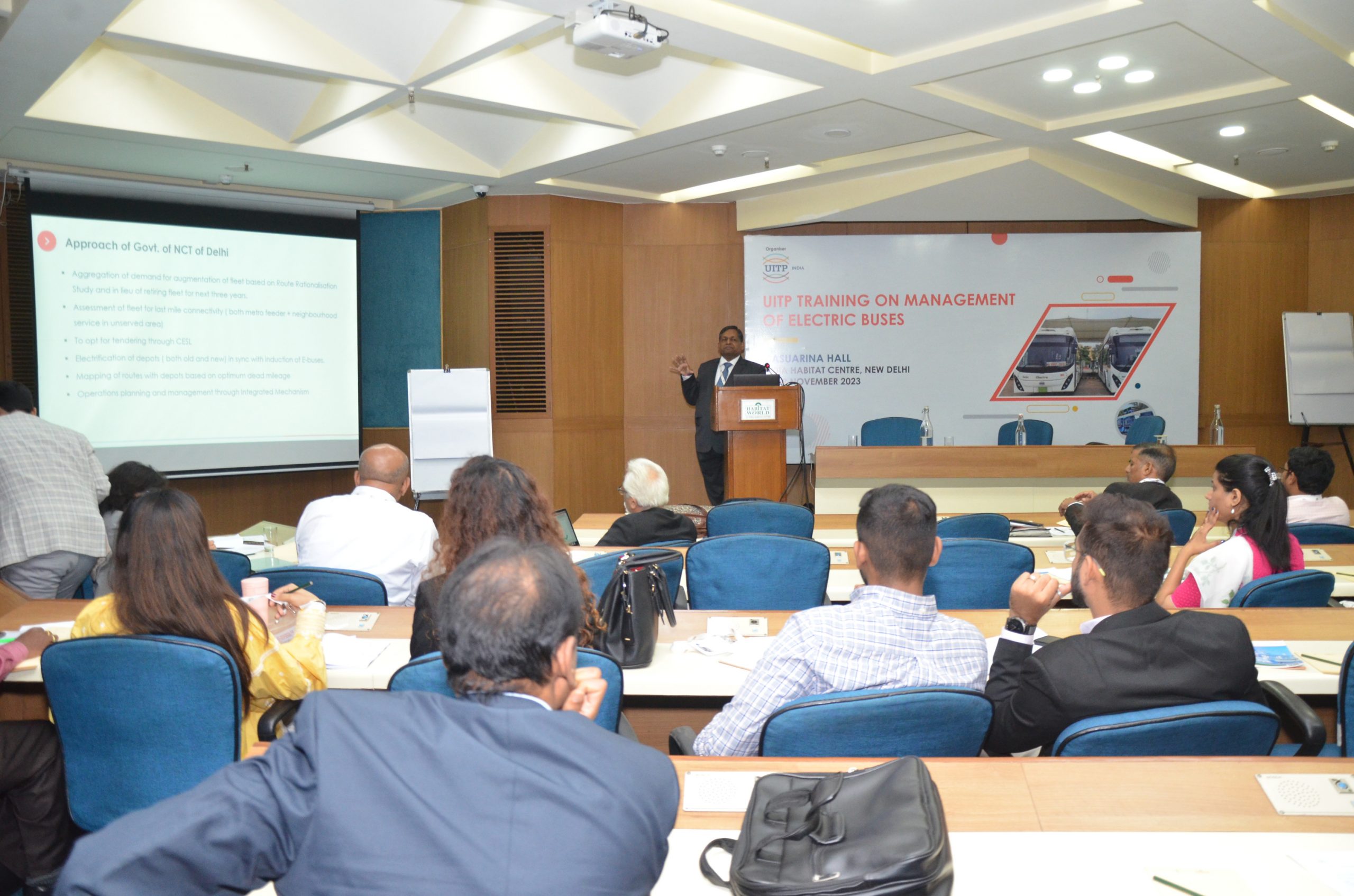
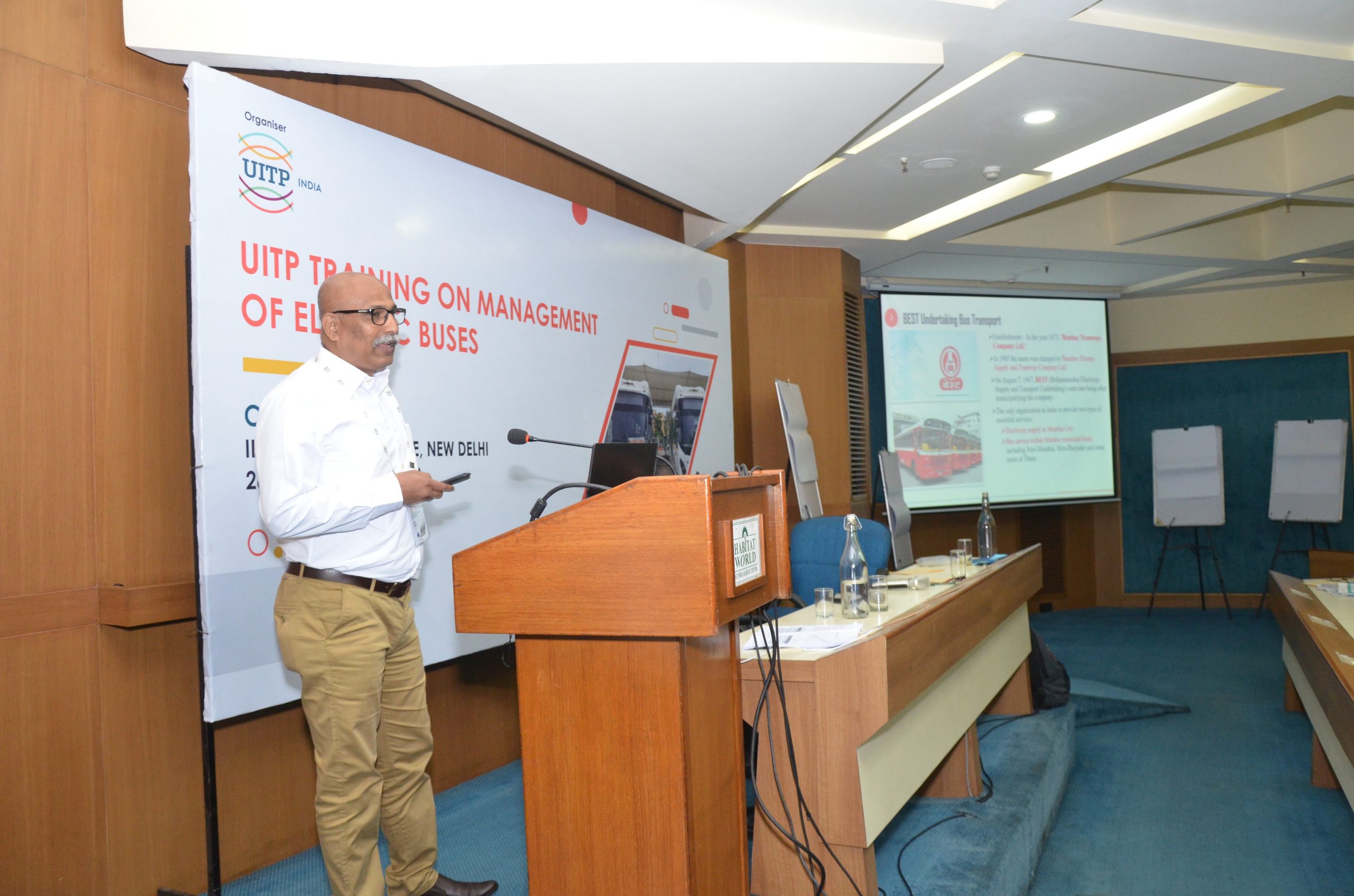
C.K. Goyal and Alok Jain jointly led the post-lunch session on Procurement and Contracting. Mr. Goyal emphasized the need for a Gross Cost Contract (Op-Ex Model) in e-buses, discussed the constituents of developing an eco-system for the operation of E-Buses under the GCC (Op-Ex) model, and elaborated on the key terms and conditions of a bid document (RfP) based on his experience from the case of Delhi. Mr. Jain provided a brief overview of five different business models for the deployment of E-buses, delved into the procurement challenges, and discussed the specifics of the tendering process for e-bus operations.
Day one of the training concluded with an interactive and insightful group activity on contract making led by trainers Divyanka Dhok and Alok Jain. The participants were divided into four groups to discuss the elements of a tender document. Each group was given a list of options under different indicators, such as bidder eligibility, financial turnover needs, and trial run criteria, and was asked to discuss, select the best options, and present their case for a tender document.
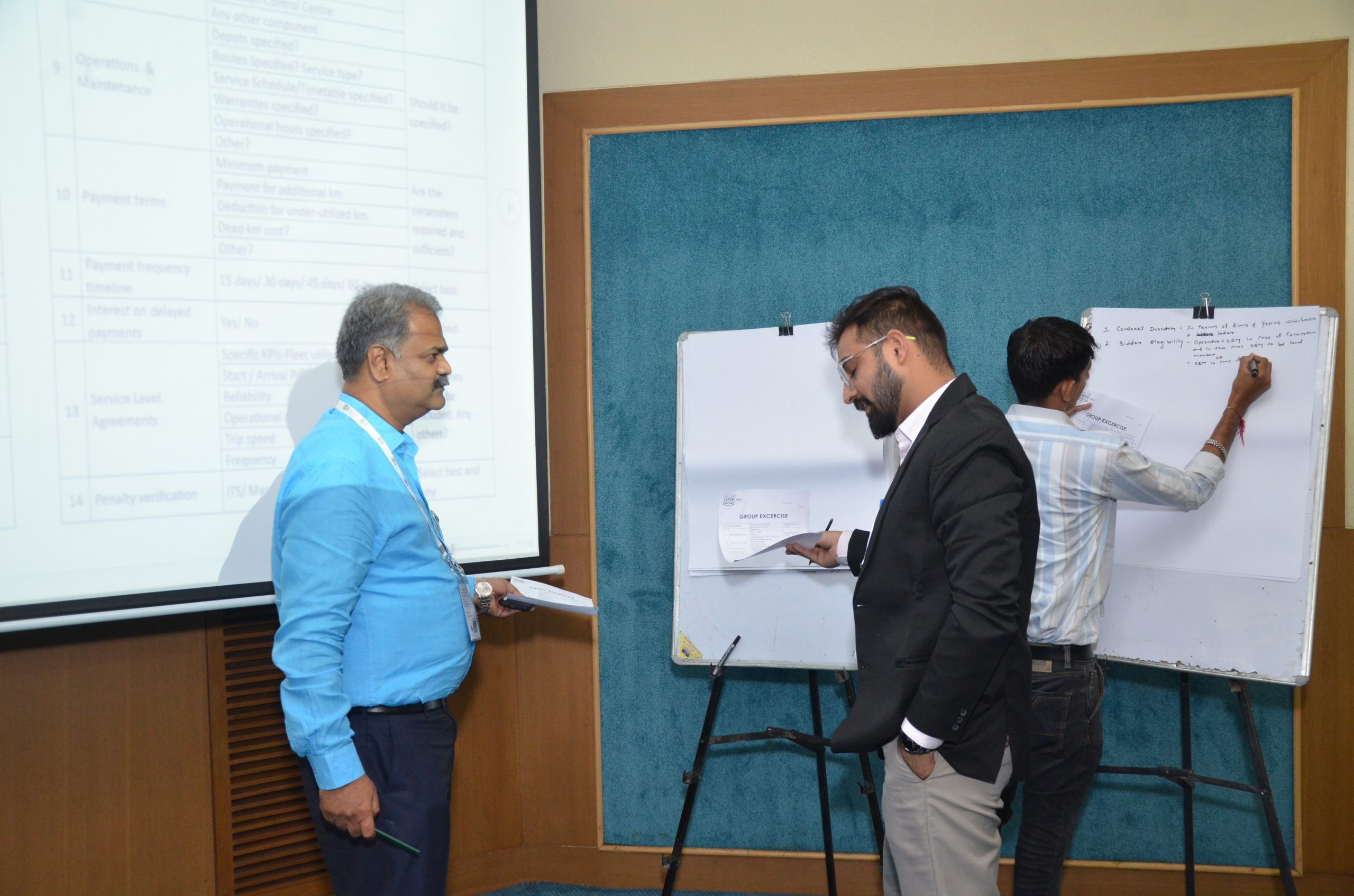
Global Learnings: Infrastructure Planning, Multistorey Depots, and Worldwide E-bus Deployment
The second day of the training program commenced with presentations by international trainers – Alok Jain and Manel Rivera Bennassar – on Infrastructure and Technology Planning and Implementation. Mr. Manel discussed considerations for depot planning when adopting clean bus technologies, emphasizing factors such as depot size, power infrastructure, data management tools, feasibility studies, fire safety considerations, and workshop and staff requirements. Using the case of the EMT Madrid bus depot, he talked about charging infrastructure and workshop facilities. Mr. Alok presented the case of Multistorey Hong Kong bus depots through interesting photographs and a video. Participants engaged in an interactive discussion on key factors for implementing multistorey depots in cities.
The last session on the worldwide deployment of e-buses, focusing on the e-bus scenario globally, included case examples from Santiago (Chile) and Shenzhen (China). The cases revealed key insights into financial and operational models adopted, TCO analysis, and stakeholder participation. The concluding session was led by Divyanka Dhok, Researcher at UITP India, who provided a brief overview of the findings from UITP India’s research projects on electric buses in collaboration with STUs and the ongoing project on Advancing Electric Buses in India. All participants who attended the training program were awarded the UITP Academy training certificate.
The two-day training concluded with a technical visit to Shastri Park Electric Bus Depot, Delhi, facilitated by DIMTS. The visit offered participants a firsthand experience of riding an electric bus, understanding the technical specifications of bus depot planning, and observing the deployment of charging facilities at the depot.
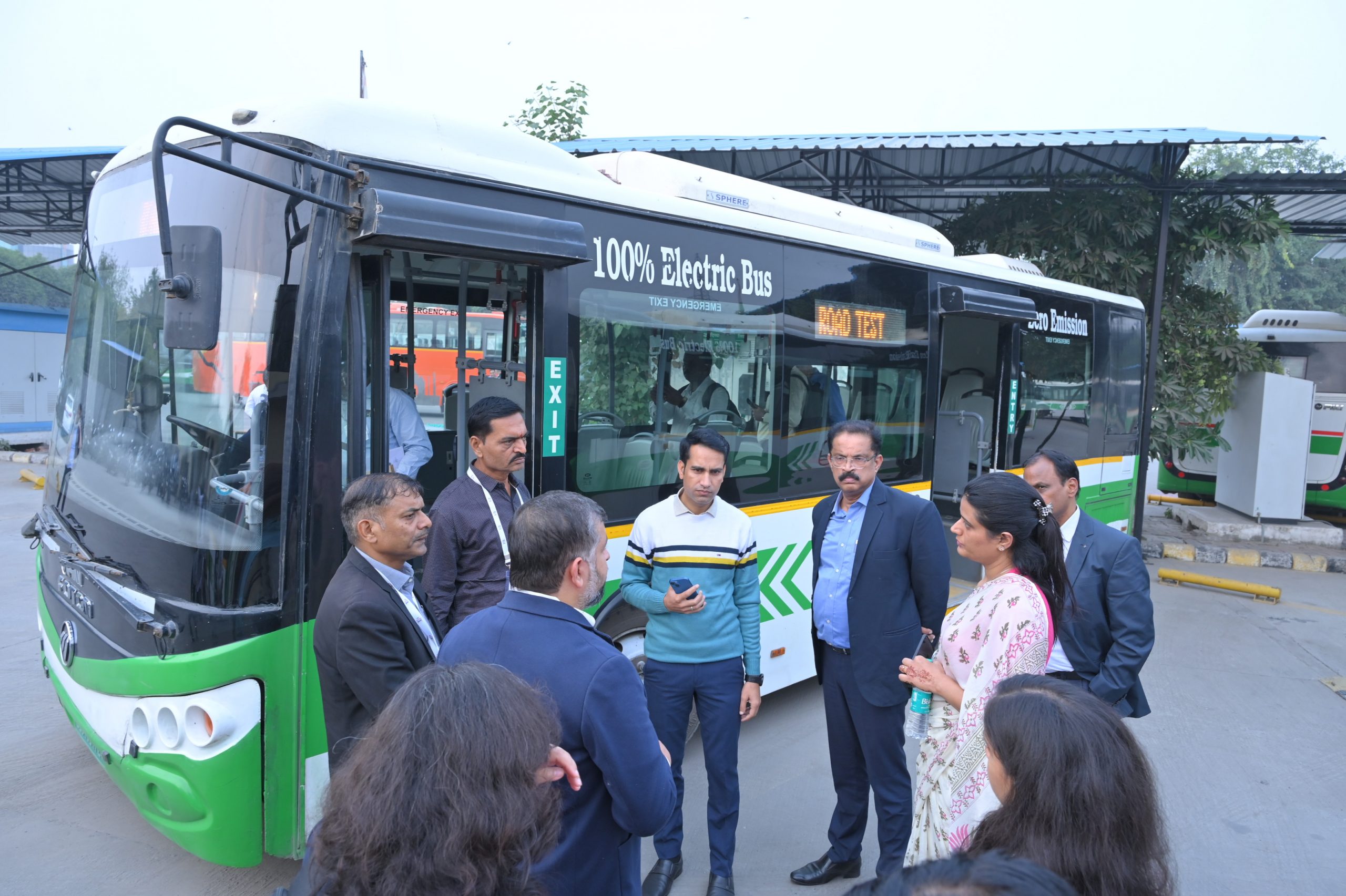
Presentations of the E-Bus Training are available to the registered participants and members on MY LIBRARY
The details and key discussions from the training programme can be downloaded from the report UITP E-Bus Training Report, 28-29 Nov 2023




